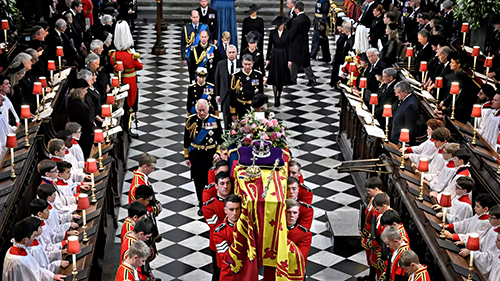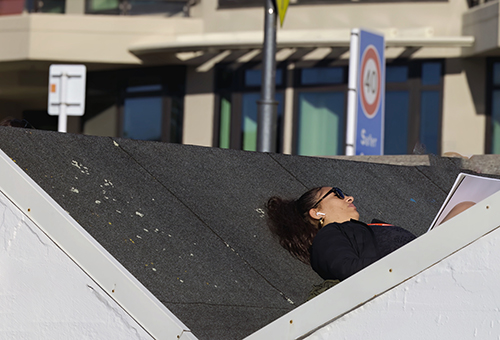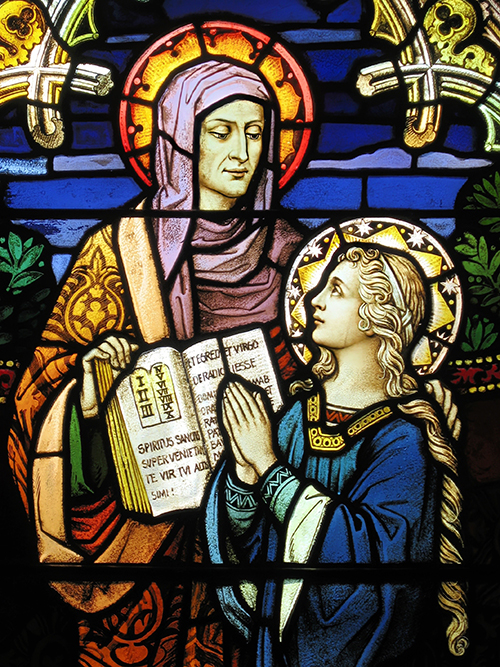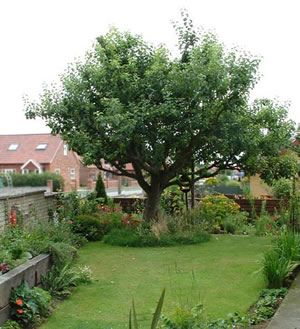Have you noticed?
The shops are a little noisier, Christmas music is playing gently in the background, tinsel and glitter have begun to appear, and the so-called ‘Christmas specials’ are in the front windows to entice us in!
The end of the calendar year approaches, and so too does our liturgical year and we again proclaim (Luke 25: 35 – 43) “Christ the King”
Yet we have a picture of a beaten, bloodied, bedraggled, broken and naked man hanging in despairing human agony, nailed to a tree!
Christ the King? What is our liturgy playing at?

Cast your mind back to the recent funeral liturgy for Queen Elizabeth II, such a sombre and sedate liturgy, as ought to be for a deceased monarch.
However, people were still dressed in their most ‘glamourous’ mourning attire.
And, on the sanctuary there was still red and crimson on display, the choir was robed in their cathedral-best choir dress and they sang with beauty and energy.
A colourful bouquet of flowers was left at both her London and Scottish homes.
Hours of preparation were involved in the Queen’s funeral liturgy.
The late Queen’s death, while sombre, had colour to it.
She was interred in St George’s Chapel, Windsor Castle and where her remains will stay with a beautiful marble plaque placed on top.
The difference between the two is unmistakable.
One, for 70 years, we called ‘Queen’, the other, for some 2000 years and counting we have call ‘King’.
However, if by chance, you go looking for the remains of “our King”, all you will find is an empty cross, and a vacant tomb with a stone rolled away.
The illustration is titled ‘The Crucifixion’ by the American artist Edward Knippers



